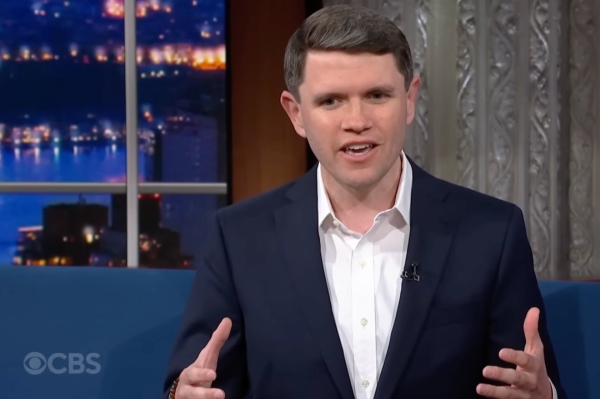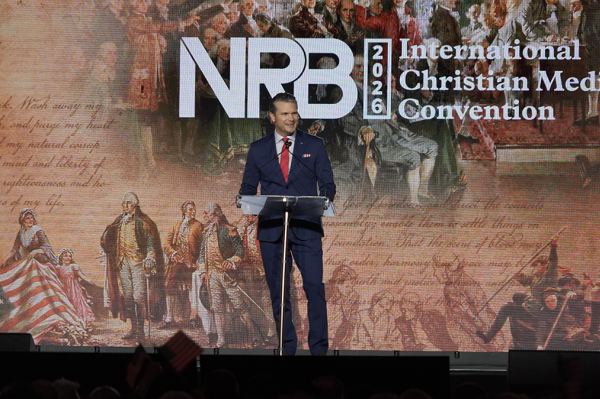A Christian nation? 2 foundational Christian doctrines in America (pt 2)

Earlier this month, on Independence Day, I published a piece in The Christian Post arguing that we should not refer to the United States as “a Christian nation.” Such a title leads people around the world to conclude that Jesus is a regional god—the god of the United States. Jesus becomes responsible for all that our government does; Christian missionaries are seen as an invading force; and Christian converts are seen as traitors. In addition, people come to assume that all Americans (including American TV characters) are Christians. Needless to say, this is bad witness.
But let’s not throw the baby out with the bathwater. Although we should avoid calling ourselves a Christian nation, we should not shy away from recognizing that in many ways America has been blessed by God, not in small part because some Christian doctrines have served as foundational American doctrines.
For several years, I have taught a course on “Religion and Law in the US.” Many students come into the course with no understanding of the historic relationship between Christianity and American law. For example, some think the First Amendment requires a rigid separation between Christian values and the state. They are surprised to learn that Martin Luther King, Jr. was a minister and that he used Christian insights to challenge the nation on the issue of racial discrimination. I am glad he did not stay out of politics.
Providentially, in America, at times, Christians like MLK have brought the insights of the Christian faith to the public square. Below I will consider two foundational Christian doctrines that served as foundational American doctrines and trace some ways in which America has and has not been faithful to them. Both doctrines continue to speak to the issues of our day.
Creation, the Image of God, and the Declaration of Independence
Three times in two verses, Genesis refers to humans being created in God’s image: “‘Let us make man in our image’… So God created man in his own image, in the image of God created he him; male and female created he them,” (Gen. 1:26-27). God wanted us to take His image in humans seriously. As C.S. Lewis said, “There are no ordinary people.”
American law has taken God’s image seriously, though selectively. The Declaration of Independence is grounded in this doctrine: “All men are created equal, . . endowed by their Creator with certain unalienable Rights.” The Bill of Rights recognized that citizens have rights—freedoms of religion, speech, press, and assembly. Even the worst criminal offenders have broad procedural protections. “[I]t is better 100 guilty Persons should escape, than that one innocent Person should suffer.”
Of course, the United States (and notably the author of the Declaration) failed to live up to the Declaration’s principles. The Constitution did not protect the rights of “All men” (and women). It left twenty percent of America’s inhabitants enslaved. For many Americans, these ideals were in Martin Luther King, Jr.’s terms “a promissory note” and a “sacred obligation” that came back “marked ‘insufficient funds.’”
But at times, prophetic Christian witness has called us to our ideals, notably in the anti-slavery, civil rights, and pro-life movements. Two examples were evangelical Supreme Court Justices John Marshall Harlan and David Josiah Brewer. Harlan dissented from the Court’s decision permitting racial segregation in Plessy v. Ferguson (1896) (later reversed in Brown v. Board of Education). Brewer dissented from the Court’s approval of deportations under the Chinese Exclusion Act in Fong Yue Ting v. United States (1893), throwing the “Christian nation” label back in the country’s face. “In view of this enactment of the highest legislative body of the foremost Christian nation, may not the thoughtful Chinese disciple of Confucius fairly ask, ‘Why do they send missionaries here?’” And though, in my view, the charge of “racism” is thrown around much too casually these days, racism against African-Americans, Chinese, and others who were created in God’s image continues to rear its ugly head in the United States.
In my view, the worst modern deviation from respect for God’s image in humans is abortion. In the Bible’s dramatic imagery, we were “knit together” in our mothers’ wombs. (Ps. 139:13) In abortion cases, it has primarily been Catholic Supreme Court Justices who have dissented on behalf of those created in God’s image.
Some might argue that the dissenting Justices in the race and abortion cases are examples of Christian America, but it is important to note that they were dissenting from both the Court’s majority and the general direction of the country. They were dissenting against UN-Christian America. That being said, one of the beauties of America, is that it can be called on to respect God’s image in humans.
The Fall and the US Constitution
The US Constitution does not speak in explicitly Christian terms, but it is grounded in a Christian (and Jewish) understanding of the Fall. Humans were created in the image of .God, but they are fallen. As Paul said, quoting the Psalms, “There is no one who does what is good, not even one,” (Rom.3:12; Ps.53:3). James Madison (possibly Alexander Hamilton) justified the proposed U.S. Constitution as follows:
If men were angels, no government would be necessary. If angels were to govern men, neither external nor internal controls on government would be necessary. In framing a government which is to be administered by men over men, the great difficulty lies in this: you must first enable the government to control the governed; and in the next place oblige it to control itself. (Federalist 51)
The Constitution did two things (among many) in light of the fallen nature of humanity. It gave the central government more power, correcting a problem with the earlier Articles of Confederation. It also limited the ability of any group or government official to abuse their authority by dividing power among citizens and multiple officials and multiple divisions and sub-divisions of government. As C.S. Lewis notes, “Mankind is so fallen that no man can be trusted with unchecked power over his fellows.”
Each end of the political spectrum—both libertarianism and socialism—fails in its own way to take adequate account of the Fall. Each errs in one of the (mis)directions identified by the founders. Libertarians trust the people and assume that people will deal fairly with one another. Socialists trust the government and assume that elites will guide us to the good life. As the Scriptures recognize, both are in error. When “there was no king in Israel” and “everyone did what was right in his own eyes,” evil and chaos reigned (Judges 17-21). But Samuel warned that an extremely powerful government—in his case, a king—will enslave people (I Sam. 8: 10-18). We need both strong government and strong limits on government. Of course, determining how to do that requires both constant attention and great wisdom.
The reality is that both political parties in the United States, when in office, have expanded the central government’s power. Presidential orders proliferate. The federal government’s share of the Gross National Product has grown exponentially. The American founders, as well as Samuel, would have been concerned.
Much of the violence we have seen in the United States over the last year has been a result of the failure of those on all sides to appreciate the depths of the Fall. We ignore the fallen nature of humans at our peril. Law and order proponents discounted the tendency of police to abuse their authority. “Defund the police” proponents ignored the fact that police are the only protection many people have against violence. The U.S. Capitol Police dismissed the possibility that election protesters might use physical violence against the Capitol. The results have been tragic. All these were rooted in problems the founders understood—humans are not angels; “you must first enable the government to control the governed; and in the next place oblige it to control itself.” Maintaining a good balance in the face of the human tendency to prefer ourselves requires divine guidance.
Conclusion
The American founders’ recognition that humans are both made in God’s image and fallen has provided a firm foundation for governing and is a major reason the United States has remained a vibrant republic. But these ideas are being challenged here and around the world today. Some leaders ignore human rights in order to retain control. Others seek to use citizens for political ends, believing that with the right political arrangements, perfected humans will emerge. “You can’t make an omelet without cracking a few eggs.” Demagogues and ideologues ignore human rights in the pursuit of personal and state power.
The United States has often failed to live up to its principles, but thankfully we have principles with which we can be challenged. People are precious and should not be used for political ends. But even the best political system will not perfect humanity. We should do the best we can, but ultimately true peace and justice must await the New Heavens and the New Earth.
Robert F. Cochran, Jr. is the Louis Brandeis Professor Emeritus at Pepperdine University School of Law. He has published over 60 articles and 10 books, including Christian Perspectives on Legal Thought (Yale University Press) and Law and the Bible (InterVarsity Press, 2013) (with David VanDrunen) and Agape, Justice, and Law (Cambridge University Press (with Zachary Calo).





















